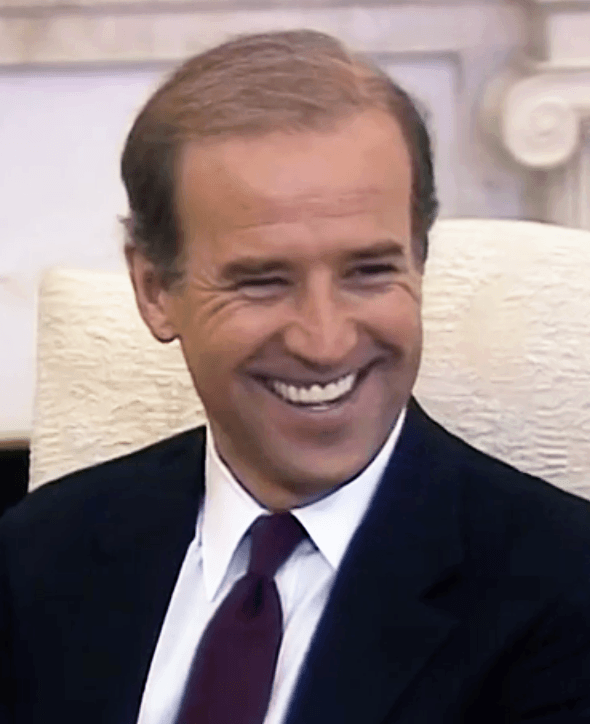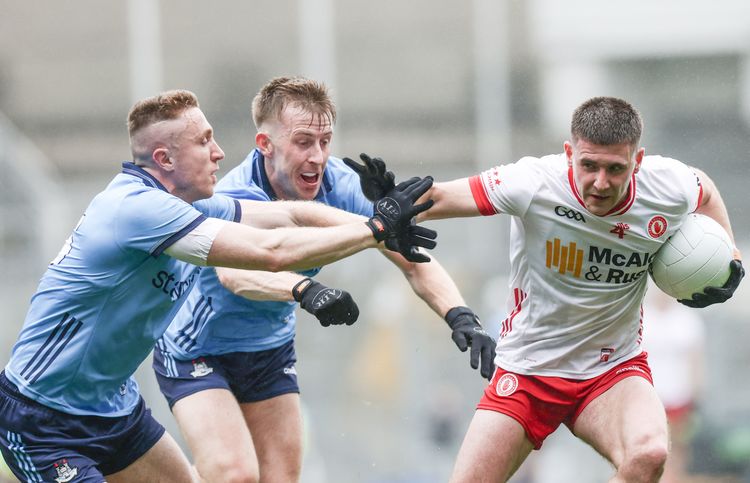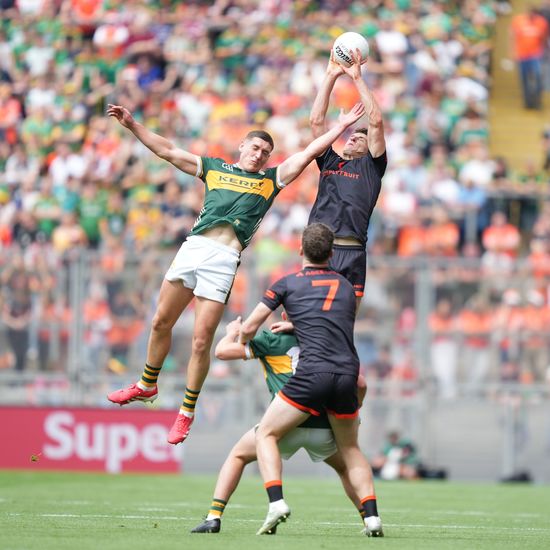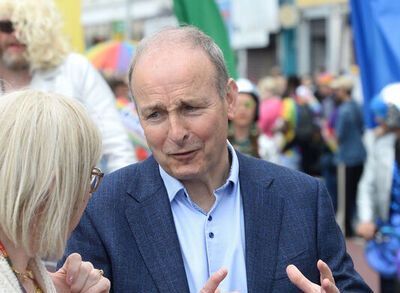“The hospital was in a tough neighborhood, bad streets and dark. If the boys could sleep, Joe and Jimmy would walk those streets, half the night. They’d tell the nurses they were going out for pizza…but they wouldn’t eat.”
“They didn’t even talk. The sound was their shoes on grit, or broken glass.
“…Joe was hoping someone would jump out from the alley, come at him. He would’ve killed the guy. He was looking for a fight. There was no place for his rage…
“Sometimes he thought it would be easier….if he were the only one left…then he could kill himself. It was the boys, kept him alive.”
So begins Chapter 65, entitled “Just, Why?”, characteristic ellipses included, of Richard Ben Cramer’s “What it Takes,” considered by many to be one of the finest books ever written about American politics.
The boys are Beau and Hunter Biden, ages 3 and 2, while Joe and Jimmy are their dad and uncle respectively. They’d been seriously in an horrific auto accident that had killed their mom Neilia and baby sister Naomi on Dec. 18, 1972.
Joe Biden was still 29 on Nov. 7, 1972, when elected to the United States Senate, two weeks short of the constitutionally required age. He won an unlikely victory over Caleb Boggs, who’d served as a senator from Delaware since 1960, and the Scranton, Pa., native is still the youngest to have been sworn in as a member of the Senate in the past 80 years.

Cramer interweaves the story of triumph and tragedy in 1972 with the highs and lows of 15 years later. Biden was chair of the Senate Judiciary Committee when President Reagan nominated the very conservative judge and legal scholar Robert Bork to the Supreme Court. Early on in the process, the senator was momentarily despondent, thinking his handling of the confirmation had jeopardized his entire political career; he prevailed, however, and Bork was rejected by 58-42 on Oct. 23, 1987, the worst defeat for a nominee in 140 years.
But Biden, one of six candidates Cramer chose to follow for his 1988 presidential campaign book, had been knee deep in his primary run when hit by what his sister Val called a “tsunami” of questions about his integrity and honesty, or what a Washington Post reporter described as “trial by media, this year’s trend”; and so feeling that with the wheels coming off his campaign, he could lose Bork, too, he withdrew from the race on Sept. 23, exactly one month before the full Senate vote.
Cramer might have been amazed, flabbergasted even, if you told him back in 1987 upon looking into your crystal ball, that one of his biographical subjects for his campaign book would assume the presidency on Jan. 20, 2021. “What it Takes” profiled six men who set out to win the office: Vice-President George Bush (1924-2018 ), Senator Bob Dole (1923- ), Gov. Michael Dukakis (1933 - ), Senator Gary Hart (1936 - ), Rep. Dick Gephardt (1941- ) and Senator Biden (1942 - ).
Cramer was born in 1950, but, Bush, the only one of his six who’s passed on, had more than 30 years of years of longevity than him. For the author died of lung cancer on Jan. 7, 2013, at age 62.
“One of the many bits of conventional wisdom about politicians is that they're all scoundrels in one way or another,” Chicago Tribune political correspondent Ellen Warren wrote a few weeks after his death. “This is especially true of those who run for president.” But the “author of a truly groundbreaking book on American politics, ‘What It Takes,’ still fresh after more than 20 years,” did not feel that way.
“Cramer took familiarity to an intense new level, parking himself in the kitchens and barnyards of the family and friends who knew the presidential candidates best.
“He interviewed those people not once or twice but repeatedly, checking back with them again and again — sometimes 50 or 60 times — trying to understand where the candidates came from, who they were deep down, what they were made of and why they thought they should be president,” Warren wrote in 2013.
“The result of that familiarity? Cramer wound up not with contempt but with genuine respect for the character and mettle of these flawed but extraordinary individuals who would give up so much (privacy, family life) to make the race.
"What in their backgrounds could give them that huge ambition, that kind of motor, that will and discipline, that faith in themselves?” she said. “What kind of faith would cause, say a dozen of these habitual winners to bend their lives and the lives of those dear to them to one hugely public roll of the dice in which all but one would fail?”
The result was a book published by Random House in 1992, which though not a commercial success has been highly influential — and loved by those readers who felt bereft when finishing the last of its 1,047 pages.
Warren said, “[W]hat a book it was — and still is.”
Some say Cramer was “in the tank” for Hart, though he liked all of them personally. He was friends with Bush, and his namesake son, but it was in Biden and Dole that the reporter found matches for his own larger than life personality, especially worthy of his exhilarating prose.
It wasn’t that Cramer was a soft touch, someone who fell for his subjects. A baseball superstar from the past emerges as a surly and miserly multimillionaire and generally unpleasant fellow in his “Joe DiMaggio: A Hero’s Life.”
There could hardly be a greater contrast between the two Josephs — the Joe who said nothing and the Joe who couldn’t stop talking, once he conquered his stutter.
Cramer wrote: “It was the joy of being with Joe that you were included—not just in his politics, but in his life, and the lives of his family. You were more likely to hear from Biden what Jill said the other night about teaching…what his mother used to say…or a wonderfully embroidered story about a nun in Scranton…than you were about his five-point education plan. Joe Biden shared his life—or his version of it—continuously. He confided it, displayed it, spread it profligately, even expanded it to connect it with your life. He could settle for nothing less.”
Biden, who eulogized Cramer at a memorial service, suggested that that the reporter did him a favor by so vividly pointing out his flaws.
It was clear from his account of what happened in 1987 that the husband, father, head of the extended Biden family, U.S. senator and presidential candidate was overstretched. The controversies that emerged could be individually explained away, but together they were the tsunami his sister described them, and the campaign wasn’t organized enough to counter the fallout.
The most famous incident was the borrowing of lines from a speech by then British Labour Party leader Neil Kinnock. Biden’s advisors, consultants and speechwriters had struggled to find the right message. But the senator loved the Labour leader’s lines about his family getting a helping hand from government; it summed up what he was trying to say about upward mobility at a time when the Reagan revolution was pushing back against such assistance, and the Democrats were on the defensive about it. Biden almost always cited Kinnock, but on one occasion he did not, it sounded like he was claiming that he, too, was from a family of miners, which he wasn’t. The incident seemed relatively trivial when explained in print, but Dukakis campaign manager John Sasso put together and leaked a tape comparing the speeches of the pols from Delaware and Wales. Its effect was devastating.
It caused a lot of ill-feeling long term, as Biden was popular in the Senate and at different levels of the party. Sasso was forced to resign and only brought back when Dukakis’s campaign was tottering late in the general election.
Another controversy was Biden’s manager Pat Cadell slipping a few lines from Bobby Kennedy into a speech, without attribution; but that wasn’t the candidate’s fault. And then there was the Syracuse University Law School flap, which had people asking questions about whether he had cheated by not having a citation in a paper he wrote. In fact, he had a glowing letter from the president of the school explaining everything and describing Biden as an honorable student. But it was deep in a file somewhere, and was not ready for distribution before the issue got some legs.
The Wall Street Journal was looking into his claim that he truly never had an alcoholic drink. He told Cramer he did just once, at a cousin’s wedding when he was a student. The New York Times were inquiring about his brother Jimmy’s bankruptcy. His sister Val was going through a divorce and the candidate was sensitive to all of these family issues coming to light. But it was the Times seeming to hold his brother’s bankruptcy over him that was the last straw. Biden quit and turned his attention to the Bork confirmation hearings.
Family was, is, everything to Joe Biden, and Cramer went back a few generations to tell the Biden/Finnegan story.
“The house on North Washington Street was a middle-class home, as Scranton defined it," he wrote. "In fact, Washington Street itself was inventory of Scranton’s strata, a serial history. Close to town, nearest the valleys, the houses were small and mean—built for coal miners, who packed the place during the great age of steam. Further out, say 15 to 20 blocks from the town’s center, the houses grew bigger, almost grand—for a pocket of professional men, managers of industries, and the anthracite mines that were the bedrock of all. And then in the ‘20s, the trolley pushed out past the ‘millionaires’ row,’ and modern smaller houses sprang up along the route, another 10 blocks or so, almost out to the old city dump. That was Green Ridge, and a good neighborhood—not easy for an Irishman to buy there, not back then.
“But Pop Finnegan made it. He was a college man, and a pretty tough cookie,” Cramer wrote.
After Santa Clara College, and the San Francisco earthquake of 1906, Ambrose Finnegan went back to Scranton, where he would eventually have careers in the coal company, the gas company and then the newspaper. He married Geraldine Blewitt, daughter of former City Engineer and by now State Senator Edward F. Blewitt, (the son of County Mayo-born Patrick Blewitt, whom Ciaran Reilly of Maynooth University wrote about in last week’s Echo; Patrick, a former seminarian, followed his parents to Pennsylvania). Ambrose and Geraldine had four sons and a daughter.

State Senator Edward F. Blewitt.
The Finnegans were respectable but had no airs; they were known for their “big, crowded, clamorous Fourth of July celebrations.” A guest to dinner would get a fine feed, but at the same time “he’d better watch out what he said. All his ideas were fair game; they’d tear him apart.” Which is what happened to Joseph R. Biden Sr., a native of Baltimore, who fell in love with the only daughter Jean, and she with him.
Joseph’s mother’s sister had married Bill Sheen, a “two-fisted Irish business baron.” The fortunes of Joe Sr. were tied to those of his first cousin, Bill Jr. Jean Finnegan Biden regarded young Bill as a lush and liar. Meanwhile Joe Sr. was exceptionally generous with all the perks of his work as head of the Boston branch of the Sheen empire, but his early business dreams came to nought, when the old man decided to withhold the credit line to teach his son a lesson. The impact was greatest on Joe Sr, who followed his wife back to Scranton to live with his children, parents-in-law, brother-in-law Edward Blewitt Finnegan, and Jean’s aunt Gertrude Blewitt, who never left the property, except one time when little Joey and his pals struck an oil delivery man in the kisser with a snowball. He chased Joe Jr. into the yard, only to be chased back out by the adoring Aunt Gertrude.
This was a time, when this multigenerational household, living with the in-laws, was a lot more common than it is now. Edward was never shy about reminding his brother-in-law that he wasn’t a big shot anymore. But when things got better for Joe Sr. in Wilmington, the salesman Edward “Boo-Boo” Finnegan would join the household there.
His nickname was derived from his stutter. Young Joey, like his uncle, had a stutter. It was his main, indeed only obstacle; otherwise he was the kid and youth most likely to succeed with his manners and charm, his exuberance and brash confidence.
Once a teacher, a religious sister, said, “Mr. Bu-bu-bu-Biden” and he walked out of class. Jean took him back and told the teacher: “If you ever speak to my son like that again, I’ll come back and rip that bonnet off your head.”
“Mom-Mom,” as the Bidens called her, was in the hospital, as was Val, and Jimmy, wife Jill, and the entire clan when Joe had major surgery necessitated by an aneurysm. It was 50-50 whether he’d make it. It was early 1988, and the family felt relieved that he’d pulled out of the campaign when he did. What might have happened if he’d been campaigning in remote snowy New Hampshire far from medical help?
Cramer went back to the senator after it was all over. He had few regrets. The problem was he never really saw himself in the White House. He ran because people wanted him to.
And if he did so again, it would be made clear to everyone that Joe Biden did not cheat in law school.









